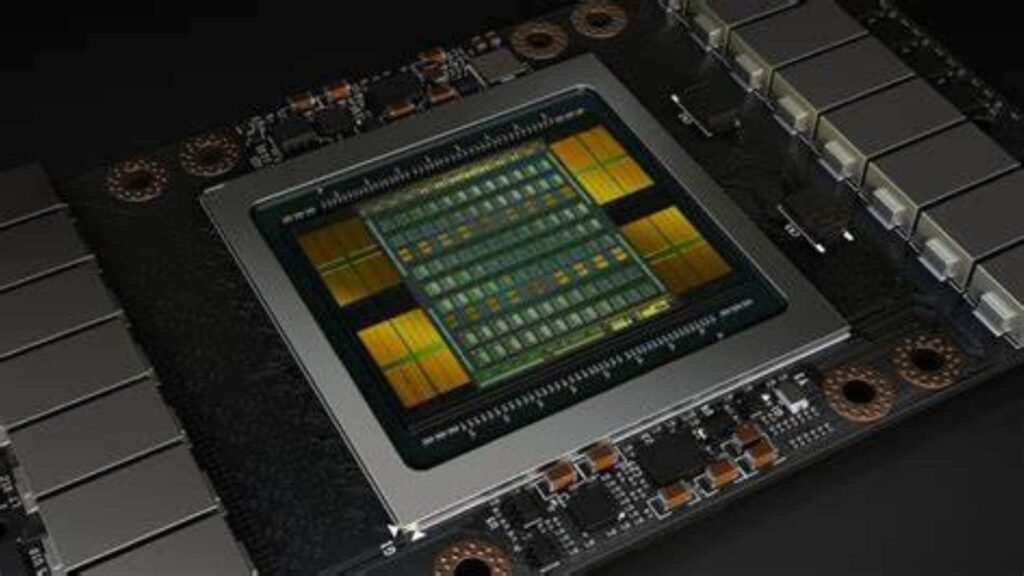Nvidia’s legal battle at the intersection of artificial intelligence (AI) and copyright law is a hotly debated topic in today’s digital landscape, which is characterized by rapid technological progress. Recent headlines have highlighted Nvidia’s involvement in a legal battle over the use of copyrighted materials in its artificial intelligence technology. Nvidia, a major player in the technology industry, is now facing allegations of copyright infringement over claims that it used copyrighted works without permission to train its AI platform, NeMo.
The lawsuit, filed by a group of authors, claims that Nvidia’s AI technology violates their copyrights by incorporating their works without proper authorization. This scenario emphasizes the complex relationship between AI innovation and intellectual property rights, igniting debates about ethical and legal issues in AI development.
Artificial intelligence technology is increasingly being used in a variety of industries, including the creative sector. Nvidia’s AI technology, “StyleGAN,” is intended to generate realistic images based on a specific input. However, the lawsuit alleges that Nvidia’s AI is trained on copyrighted works without the necessary licenses or permissions from the original creators.
The Allegations against Nvidia’s Legal Battle
The lawsuit, led by authors Brian Keene, Abdi Nazemian, and Stewart O’Nan, accuses Nvidia of including their copyrighted works in a dataset of 196,640 books used to train NeMo. These authors claim that their literary works, such as Keene’s “Ghost Walk,” Nazemian’s “Like a Love Story,” and O’Nan’s “Last Night at the Lobster,” were used without their permission, thereby violating their copyrights.
They allege that Nvidia used their copyrighted materials to train AI models without permission. These authors are seeking unspecified damages on behalf of individuals in the United States whose copyrighted works have contributed to the training of NeMo’s large language models over the last three years.
Legal Proceedings
Intellectual property rights are fundamental to the creative industry, protecting artists’ and creators’ rights to regulate and profit from their works. Copyright law grants creators exclusive rights, including the ability to reproduce, distribute, and display their works. Any unauthorized use of copyrighted materials can result in legal consequences.
The authors’ lawsuit, filed in San Francisco federal court, is framed as a proposed class action to represent individuals whose copyrighted works were used to train NeMo’s large language models. By taking this legal action, the authors seek redress for alleged copyright infringements on behalf of affected parties in the United States.
Nvidia has declined to comment on the ongoing litigation, choosing to remain silent on the allegations of copyright infringement. This reluctance on the part of the tech behemoth emphasizes the gravity of the legal implications of AI implementation and digital copyright law. It has the potential to set a precedent for how AI developers and companies navigate the complex landscape of intellectual property rights.
Implications for AI Development

As AI technology advances, developers and companies must prioritize ethical considerations and follow copyright laws. This includes obtaining the necessary licenses and permissions to use copyrighted works in AI training datasets. Additionally, AI algorithms should be designed to respect and protect creators’ rights.
The lawsuit emphasizes the contentious nature of obtaining datasets for training AI models. Nvidia’s reliance on a dataset known as “The Pile,” which included the Books3 collection of copyrighted materials, highlights the difficulties involved in ethically sourcing training data for AI development.
Nvidia’s legal battle raises critical questions about AI technology’s ethical and legal implications. Although AI has the potential to revolutionize many industries, including the creative industry, its use must be ethical and follow copyright laws. The legal scrutiny that Nvidia has faced sheds light on the larger ethical debates surrounding AI development. With the rapid evolution of AI technologies, stakeholders must navigate complex legal and ethical terrains to ensure the responsible and transparent deployment of AI. This includes paying close attention to copyright compliance and protecting intellectual property rights as AI technologies advance.
Industry Ramifications

Nvidia’s legal battle entanglements reflect a broader trend of litigation in the tech industry over AI and copyright infringement. Similar lawsuits against tech companies, such as the New York Times’ case against ChatGPT creator OpenAI and Microsoft, highlight the growing legal scrutiny of AI technologies. These Nvidia’s legal battles highlight the growing importance of ethical and legal considerations in the development and deployment of AI technologies as businesses struggle to navigate the complex landscape of intellectual property rights and copyright compliance in the digital age.
Despite legal challenges, Nvidia continues to inspire investor confidence thanks to its significant contributions to the advancement of artificial intelligence. The company’s remarkable stock performance, which has risen nearly 600% since the end of 2022, reflects investors’ confidence in Nvidia’s pivotal role in shaping the AI landscape. Despite the ongoing legal challenges, Nvidia’s market value of nearly $2.2 trillion is a testament to its unwavering belief in its capabilities.
Nvidia’s legal battle highlights the complex intersection of AI use and copyright law, shedding light on the challenges of ethical AI development. As technology advances, stakeholders must navigate legal, ethical, and accountability considerations to ensure responsible AI deployment that complies with copyright regulations and intellectual property rights.
